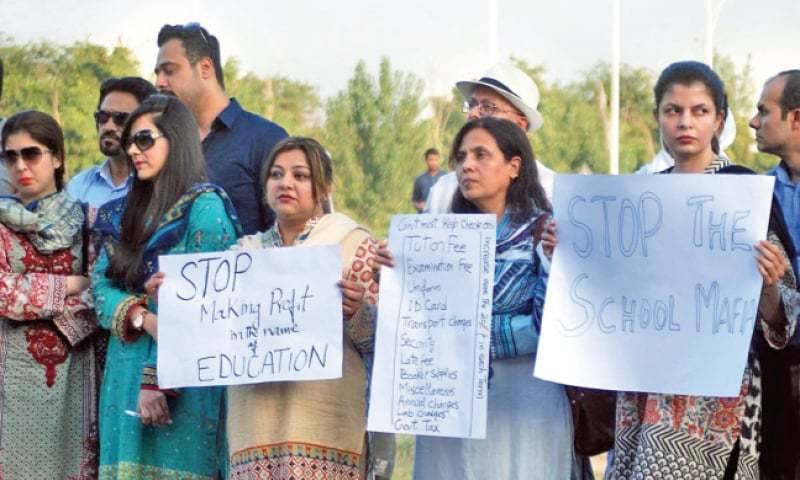The battle between the government and private schools has reached a critical level. Private schools in Punjab were closed for two days, and have threatened to continue their protest next week indefinitely until the bill for checks placed on educational institutions is reconsidered. The latter are adamant to prove that any increment in the fee structure is justified- after all, they are private businesses providing a crucial service.
Under this new legislation the private schools cannot increase fee up to five per cent annually and that too with the approval of government representatives. This initial closure may soon lead to an indefinite shutdown of all private schools in Punjab. The schools claim that they deeply regret the impact that this will have on the children, but need to be able to sustain the quality promised. Moreover for them, in the present scenario, the provision of quality education in Punjab is no longer possible. It must be kept in mind that this is an area where the private sector has made a massive contribution to this country.
The schools under discussion here are among the most popular, top-tier ‘brands’ of education. They have numerous branches in almost every city across the country, and are the kind of places parents usually clamour to get their children enrolled into. The government has no business dictating prices for private enterprises, especially if they themselves cannot provide quality education. If the prices are too exorbitant, the government can subsidise, but cannot force institutions to lower their fees. If anything, this will prove to be massively detrimental, as the schools will then resort to cost-cutting measures, compromising on the quality of education. The government is already passing on its actual responsibility to private firms so it should at least let them do their job. If the public institutions provided a credible option, then we would not be in a position where private schools seem like a necessity and the only option for parents. Like all sectors, private enterprises in education should also be allowed to set prices on their own, usually depending on the quality and reputation of the institution. This is a repeat of what happened last September, and the argument made by the private sector of needing to cover their costs to effectively run a profit-making venture still stands.
There is a need to effectively implement a regulatory mechanism that acts as a check on the operations of private schools and ensures compliance with standards. But, dictating terms and guidelines for private schools, if they are actually catering to the small progress in the education sector, is far from the government’s job description.






